Recreation: A Detailed Explanation and Study Guide
Recreation refers to activities that individuals engage in for leisure, enjoyment, and relaxation. These activities are not only a means of unwinding and having fun but also play a significant role in promoting physical, mental, and emotional well-being.
Types of Recreation
Recreation can be categorized into various types, including:
- Outdoor Recreation: Activities such as hiking, camping, fishing, and cycling that take place in natural environments.
- Indoor Recreation: Activities such as board games, puzzles, and indoor sports that are enjoyed within enclosed spaces.
- Social Recreation: Activities that involve interacting with others, such as team sports, group fitness classes, and community events.
- Cultural Recreation: Engaging in activities related to arts, music, theater, and other cultural pursuits.
- Adventurous Recreation: Activities that involve an element of risk and excitement, such as rock climbing, skydiving, and whitewater rafting.
Benefits of Recreation
Engaging in recreational activities offers a wide range of benefits:
- Physical Health: Recreation promotes physical fitness, coordination, and overall well-being through activities that involve movement and exercise.
- Mental Well-being: Recreation helps reduce stress, anxiety, and depression, and fosters mental clarity and creativity.
- Social Connections: Participating in recreation allows individuals to build and strengthen relationships, develop teamwork skills, and foster a sense of community.
- Personal Fulfillment: Recreation provides opportunities for personal growth, self-expression, and the pursuit of hobbies and interests.
- Environmental Awareness: Outdoor recreation fosters an appreciation for nature and encourages environmental stewardship.
Study Guide
To study and understand the concept of recreation, consider the following key points:
- Define recreation and differentiate it from work or obligatory activities.
- Identify and describe at least three types of recreational activities from different categories (e.g., outdoor, indoor, social, cultural).
- Explain the physical, mental, and social benefits associated with engaging in recreational activities.
- Discuss the importance of recreational activities in maintaining a balanced and healthy lifestyle.
- Research and present a case study or personal experience that highlights the positive impact of recreation on an individual or community.
By understanding the various types of recreation and its associated benefits, individuals can make informed choices about how to incorporate leisure activities into their lives, leading to a more fulfilling and well-rounded lifestyle.
.◂Science Worksheets and Study Guides Seventh Grade. Protists and Fungi
Study Guide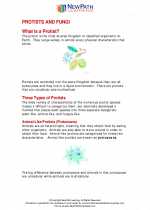 Protists and Fungi
Protists and Fungi  Worksheet/Answer key
Worksheet/Answer key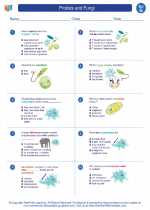 Protists and Fungi
Protists and Fungi  Worksheet/Answer key
Worksheet/Answer key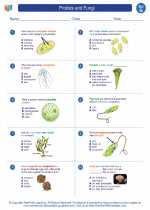 Protists and Fungi
Protists and Fungi  Worksheet/Answer key
Worksheet/Answer key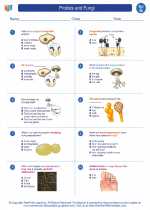 Protists and Fungi
Protists and Fungi  Worksheet/Answer key
Worksheet/Answer key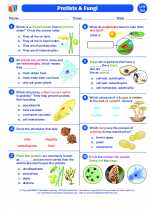 Protists and Fungi
Protists and Fungi  Vocabulary/Answer key
Vocabulary/Answer key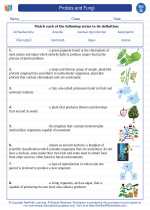 Protists and Fungi
Protists and Fungi  Vocabulary/Answer key
Vocabulary/Answer key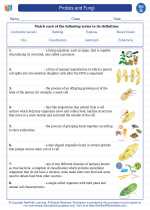 Protists and Fungi
Protists and Fungi  Vocabulary/Answer key
Vocabulary/Answer key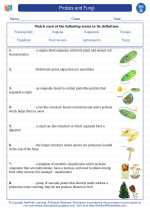 Protists and Fungi
Protists and Fungi  Vocabulary/Answer key
Vocabulary/Answer key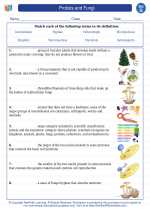 Protists and Fungi
Protists and Fungi  Vocabulary/Answer key
Vocabulary/Answer key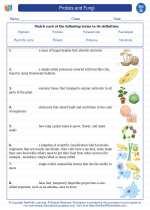 Protists and Fungi
Protists and Fungi  Vocabulary/Answer key
Vocabulary/Answer key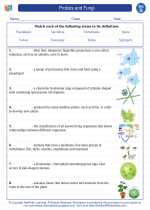 Protists and Fungi
Protists and Fungi 

 Worksheet/Answer key
Worksheet/Answer key
 Worksheet/Answer key
Worksheet/Answer key
 Worksheet/Answer key
Worksheet/Answer key
 Worksheet/Answer key
Worksheet/Answer key
 Vocabulary/Answer key
Vocabulary/Answer key
 Vocabulary/Answer key
Vocabulary/Answer key
 Vocabulary/Answer key
Vocabulary/Answer key
 Vocabulary/Answer key
Vocabulary/Answer key
 Vocabulary/Answer key
Vocabulary/Answer key
 Vocabulary/Answer key
Vocabulary/Answer key

The resources above cover the following skills:
LIFE SCIENCE
Ecosystems: Interactions, Energy, and Dynamics
Construct an explanation to predict patterns of interactions in different ecosystems in terms of the relationships between and among organisms (e.g., competition, predation, mutualism, commensalism, parasitism).